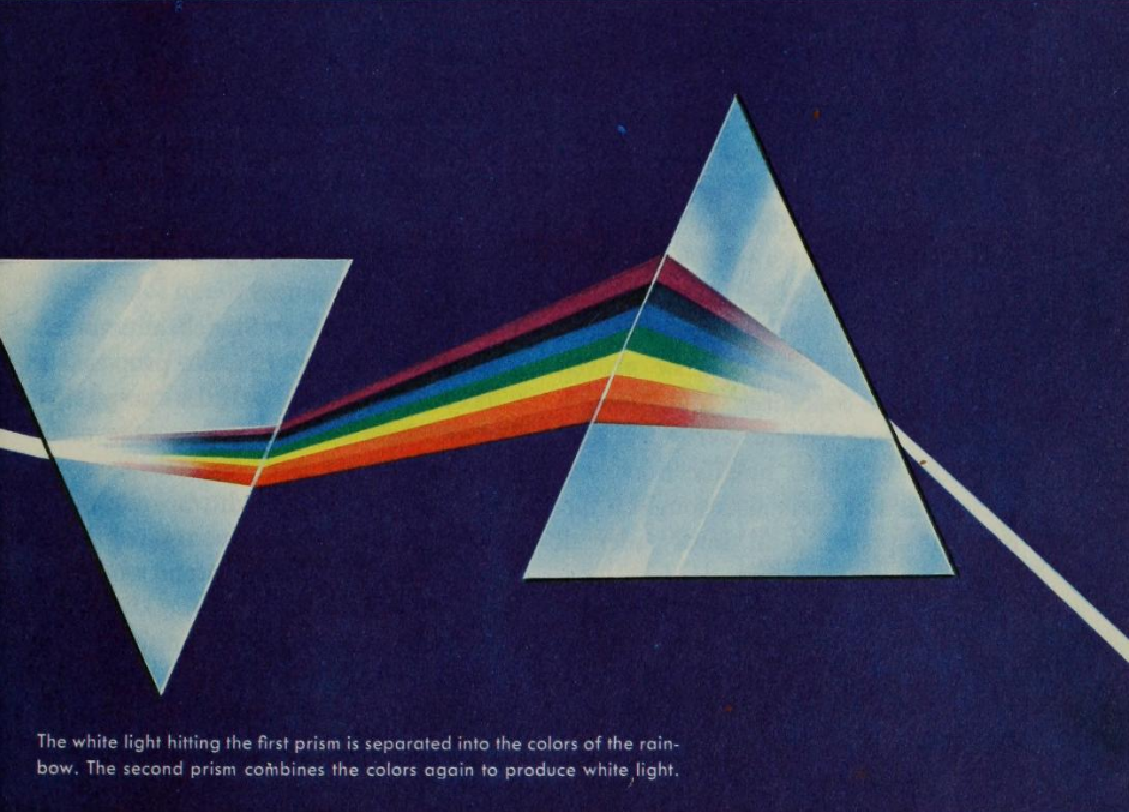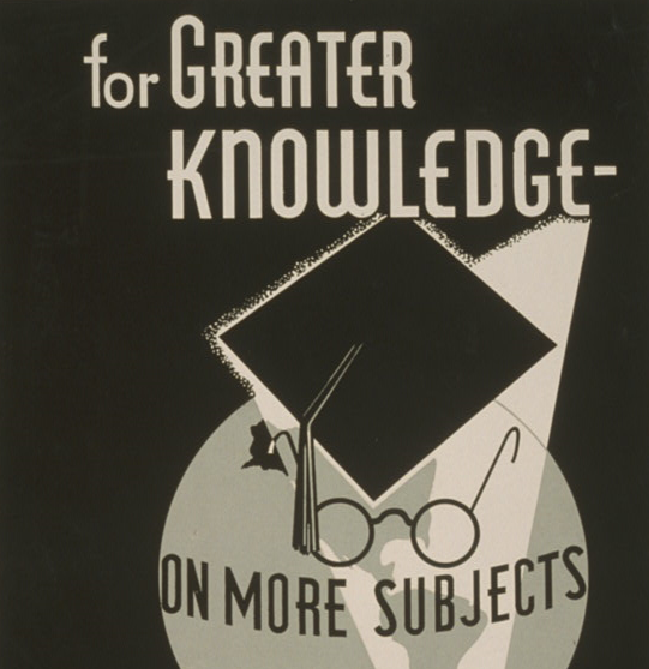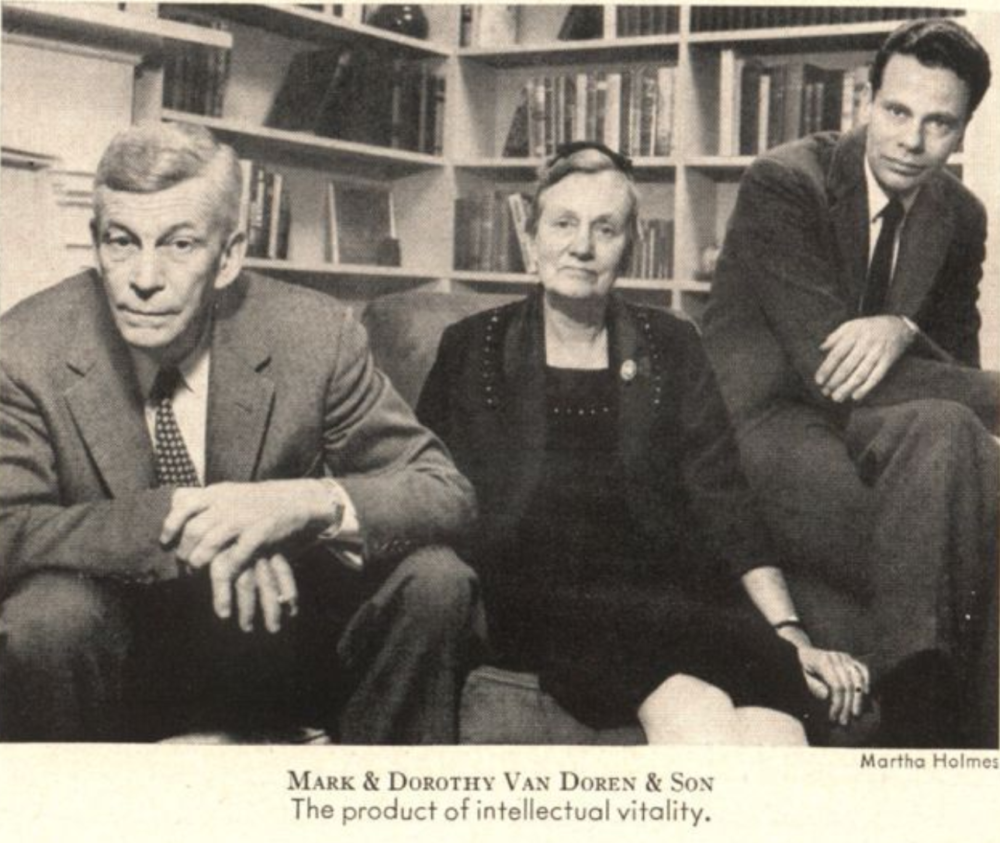A thread passing through the eye of a needle. An audience being drawn through the acts of a dramatic play. Light separating into a rainbow as it hits a prism. These are all apt visual metaphors for the 1940’s. It’s the era which contains the origin story of how a reluctant U.S. became the accidental imperial power of the world as the British stepped down gracefully so as to ‘spend more time with its family’.
The prism is most fitting in this case. The seizing and breaking-up of I.G. Farben’s dye trust by 1953, which at one time produced ~90% of the world’s dyestuffs, appears to have had the observable coincidence of exploding the visual world into color. To get there, the “intelligent men”, or the ones who are allowed access to the channels of communication, had convinced themselves and world public opinion that Total War and modelling lockstep censorship was the only way forward.
White light enters the prism
They were quite vocal about it in 1942. In his book, Proclaim Liberty!, cultural critic Gilbert Seldes wrote,
“if our leaders believed that total effort could be achieved more quickly by lies than by truth, it would be their obligation to lie to us. In total war there is no alternative to the most effective weapon. Only the weapon must be effective over a sufficient length of time; the advantage of a lie must be measured against the loss when the lie is shown up…”
“Before propaganda can lie to us, safely and for our own preservation, honorably and desirably, it must persuade us to give up our whole system of communication, our political habits, our tradition of free criticism.”
Those were responses to the actions of Archibald MacLeish. History remembers him as a poet, not as a bureaucrat propagandist or social engineer, because his groups ideas won. Martin Quigley, editor and publisher of the Motion Picture Herald, prosed at the time,
“The question that challenges serious attention in connection with MacLeish… is whether he was speaking as A. MacLeish, poet, writer, ‘advanced’ political and social thinker and, incidentally, librarian of Congress, or whether he was speaking as director of the Office of Facts and Figures, a department… intended to afford the public facts and figures useful to… the prosecution of the war… Presumably, a function of the department is wartime propaganda.”
“We trust that the day shall not arrive when, clothed with wartime powers, they shall substitute directives for argument and insistence. Thus, if our trust is not misplaced, time and experience will solve the problem – if there is one – in the American way.”
That “American Way” was to continue the ‘ask nice and we profit’ self-censoring which had been working just fine in movies and radio. There was no need to impose rules or force directives on them. They weren’t the newspapers.
In the spring of 1942, MacLeish was basically on a moralizing censorship advisory tour, starting with the newspapers. He delivered an address to the American Society of Newspaper Editors titled “The Responsibility of the Press”, proclaiming that the German’s are trying to divide us and “[if] successful this propaganda would divide us internally precisely as our enemies propose we shall be divided”.
Three days later, his most significant contribution to this era, an address he delivered at the Annual Luncheon of the Associated Press on April 20, 1942, stating, “To have the masters of the American press silenced in front of you for twenty minutes while you tell them, is something any public servant would gladly sacrifice his hope of heaven to achieve.” The speech he prepared for them was titled “The Strategy of Truth”.
It was hard to define at the time, as new ideas tend to be, but the essence of “The Strategy of Truth” is to combine patriotic and ideological opinion with Inoculation Theory to engineer a truth that drives a public opinion. That required editorializing and overt acts of opinion molding. And they did it. They were told it was okay to do it by a peer, a comrade, one of the intelligent men.
Recipient of the 1941 Peabody Award for Outstanding Educational Program for the show “University of Chicago Round Table of the Air”, Director of Radio Productions at the University of Chicago, Sherman Dryer, responds in his book Radio in Wartime, not by arguing the concept, but by splitting hairs over the choice of words,
“Ideally the shift from a Strategy of Truth to a propaganda for the truth should be made as an official decision, so there can be no misunderstanding either as to its aims or purpose.”
This mentality became embedded into journalism and entertainment at the height of radio, the golden age of movies, the dawn of television and never left. Subjective “propaganda for the truth” rules the day.
We exit the prism together
For two contemporary examples, think Colin Powell’s testimony about WMD’s in Iraq as justification for that war: It was presented as a truth of that time, supported by the justifications our then fledgling nation needed. Or the anti-MAGA harpies: they are all brainwashed by a “Strategy of Truth” propaganda pseudo-environment, which they know in their soul to be true, and which justifies their Total War.
The intelligent men too, like it or not, have to go through the prism: the eye of the needle: the final act, and find out with the rest of us, what is on the other side.
In 1967, writing in the Saturday Review of Literature, MacLeish laments about the resolve of that time, commenting on President Johnson’s grievance to “the cussers and complainers… who only see what is wrong in the world”. He begins,
“Throughout the contemporary world, or that part of it, at least, which modern technology has affected, nothing is more noticeable than… the contradiction between the triumphs of human achievement, on the one hand, and the profound uneasiness of humanity on the other.”
“For the first time the deeds of men have caught up with their imaginations… Fire has been stolen not from the Olympic gods but from the sun itself. Time has been extended and distance reduced so that a word can be heard around the earth as it is spoken and an ordinary life can be lived in leisure.”
“But what is true of the accomplishments of the age is not true of our feelings for it… Ordinary, unheroic man has dwindled until nothing but his morbid fears, his exceptional vices, his “extreme situations” are significant, and common human life itself has lost its literary interest; only its “absurdity” inspires a novel or a play.”
“The discoveries of contemporary literature are old discoveries long since made: the discovery that men do truly die; the discovery that mortal human life is meaningless; the discovery that nothing is real but the convulsions of sex, which are not real, either. ‘Vanity of vanities’, said the preacher thousands of years ago.”
“There is, in truth, a terror in the world, and the arts have heard it as they always do. Under the hum of the miraculous machines and the ceaseless publications of the brilliant physicists a silence waits and listens and is heard.”
“It is the silence of apprehension. We do not trust our time, and the reason we do not trust our time is because it is we who have made the time, and we do not trust ourselves. We have played the hero’s part, mastered the monsters, accomplished the labors, become gods– and we do not trust ourselves as gods. We know what we are.”
“In the old days when the gods were someone else, the knowledge of what we are did not frighten us. There were Furies to pursue the Hitlers, and Athenas to restore the truth. But now that we are gods ourselves we bear the knowledge for ourselves. Like that old Greek hero who learned when all the labors had been accomplished that it was he himself who had killed his sons.”
This is a deep and impressive observation. However, societies uneasiness can’t simply be reduced down to feeling insignificant; what Carl Sagan calls the “Pale Blue Dot”. With the exception of “play[ing] the hero’s part” and killing young men, MacLeish conveniently omits much of his own contributions beginning a quarter century prior. Much of the disillusionment of the post-war American-narrative is the overuse of “Strategy of Truth” style propaganda. The aftermath Seldes had warned “when the lie is shown up”, and Quigley “if our trust is not misplaced”. The fact that we are lied to for truth is very unsettling.
Reducing back to white light
Considering the Pale Blue Dot is the light passing through the lens of a telescope, when the 10,000-foot view is reduced down to a Dealy Plaza sized dossier, you can be assured that there is censorship involved. The information has been reduced down by the self-censoring of the intelligent men. When that censorship favors lies, half-lies, and falsehoods to manufacture a truth, then engineered “strategy of truth” propaganda is being produced. Corporate and bureaucratic interests only make this way easier than it is hard to do.
It should be no surprise, then, that when people find out how the consent of the masses has been manufactured, they no longer trust the social engineers on face value. The Applied Scientists who built the past have been replaced by the Social Scientists who are manufacturing the future. The kind of future that does not appreciate question or inquiry. The kind of future that human intuition rightfully resists, naturally.




